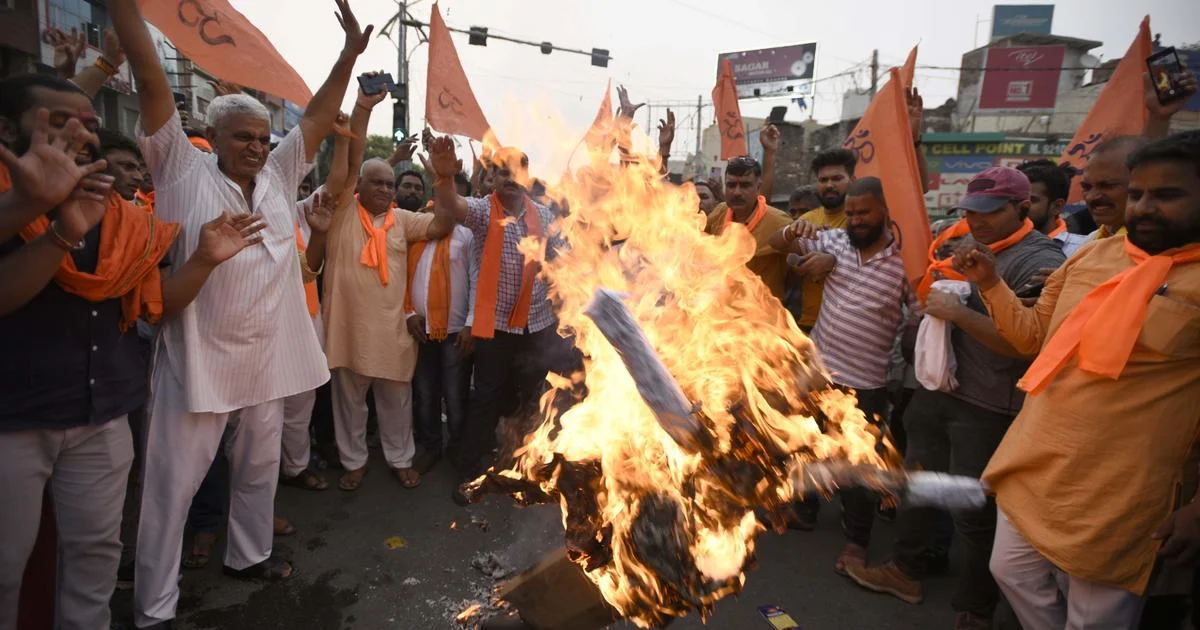In the wake of inter-religious violence that erupted in the Nuh district of India’s Haryana, the region remains gripped by tension and unease. The Indian government has taken decisive measures to restore order, imposing a curfew and enforcing tight security measures. However, the situation remains volatile, prompting authorities to extend the internet ban in Nuh until August 5.
The violence was triggered during a procession organized by two extremist organizations, the Bajrang Dal and Vishwa Hindu Parishad, which advocate for the restoration of ancient Hindu supremacy in India. As the procession escalated, shocking footage emerged showing a mob engaging in stone-pelting, arson, and the wanton destruction of shops.
Amid the chaos, more than 2,000 individuals participating in the procession found themselves stranded in a temple, fearing for their safety as the clashes intensified. Fortunately, the police were able to evacuate them from the volatile area.
Tragically, the clashes resulted in the loss of at least six lives, while over 50 others, including 20 police personnel, were injured. The violence didn’t remain confined to Nuh alone, as it soon spread to nearby areas, including Faridabad, Palwal, and Gurugram (formerly Gurgaon), situated on the outskirts of India’s capital, Delhi. In Gurugram, a mosque became the target of an enraged mob, further inflaming tensions in the region.
As authorities worked to quell the unrest and maintain law and order, they imposed a strict curfew to prevent further escalation of violence. However, amidst the curfew, reports have emerged of Muslim families fleeing their homes, fearing potential retaliation by radical Hindu groups and arbitrary police detentions. Activists from Nuh have claimed that at least 2,000 Muslims, primarily men, have left their villages and sought refuge elsewhere, painting a distressing picture of mass displacement.
The government has taken action to address the situation, with numerous First Information Reports filed against individuals involved in the violence. Several arrests have been made, and authorities continue to search for more suspects linked to the disturbances.
The unrest in Nuh has garnered international attention, raising concerns about communal harmony and the need for swift and decisive action to prevent further escalation of violence. It serves as a stark reminder of the fragile balance that exists in diverse societies and the importance of fostering understanding and dialogue to promote peaceful coexistence.
As authorities work to restore calm in the region, the eyes of the nation are on Haryana, hoping for a swift resolution to the conflict and a return to peace and stability. The road ahead may be challenging, but with concerted efforts from all stakeholders, it is hoped that the wounds of this violence can heal and pave the way for a more harmonious future.




